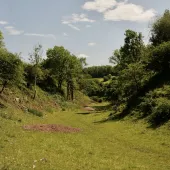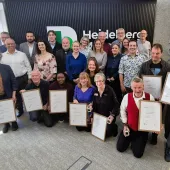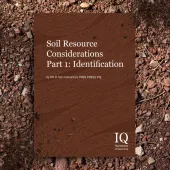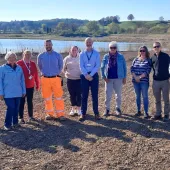University of Hull scoops UK biodiversity award
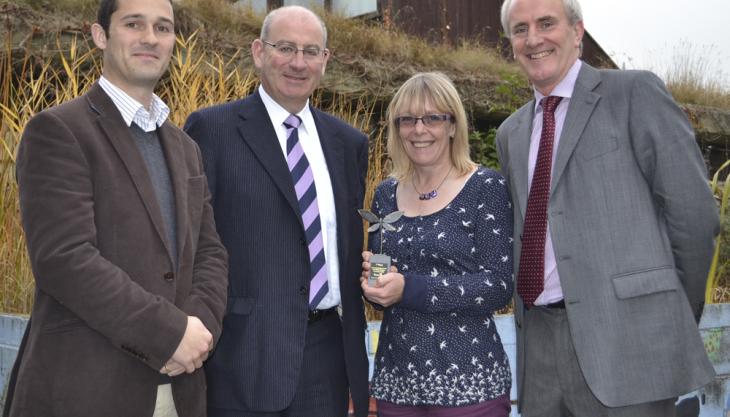
Winners announced in UK section of inaugural HeidelbergCement Quarry Life Awards scheme
A BIODIVERSITY research project carried out by a team from the University of Hull has won the UK section of the inaugural Quarry Life Awards, and been selected as one of the top three in the international competition launched by Hanson’s parent company, HeidelbergCement Group, to raise the understanding of the biological value of quarry sites both during and after extraction.
The winning project, ‘Restoration of silt lagoons for wading birds at Wykeham Quarry’, claimed the €5,000 (£4,000) first prize at an awards ceremony held on 15 November at Hanson’s Environmental Study Centre in Great Linford, Milton Keynes. It will now go forward with winning projects from Ghana and the Czech Republic to compete for the global award, which has a prize fund of €30,000 (£24,000).
The competition created strong interest from students and researchers, and more than 300 proposals from 18 countries on four continents were put forward. The top five were selected from each operating country and field research took place over the summer months.
The winning UK project was carried out at Hanson’s Wykeham Quarry, an active sand and gravel site near Scarborough, in North Yorkshire. It looked at restoration of quarry silt lagoons for wader conservation under the direction of Dr Phil Wheeler (left of picture), Dr Will Mayes, Dr Sue Hull (second from right) and student Caroline Pindar from the Centre for Environmental and Marine Sciences at Hull University’s Scarborough Campus.
Patrick O’Shea (second from left), chief executive officer of Hanson UK, who presented the awards, said: ‘Enhancing biodiversity is a core part of HeidelbergCement Group’s sustainability strategy and we were extremely impressed by the calibre of the entries from the UK.
‘The winning project highlighted the potential benefits of the restored quarry silt ponds at Wykeham to replace natural habitat for wading birds, much of which has been lost in areas of lowland agriculture. It outlined practical recommendations for the improved management of the silt lagoons and we are keen to see how we can use the research to benefit other sites.’
Dr Phil Wheeler added: ‘We are thrilled to have won this award. We hope the research we have carried out will be of real practical value to quarry managers looking to boost biodiversity at their sites and we’re very excited to have the opportunity to continue this research in partnership with Hanson.’
The UK entries were assessed by a panel of judges which included representatives from Buglife and Nature After Minerals. The other UK winners were:
- Second place: ‘Improving the biodiversity of a gravel pit lake system at Barton-under-Needwood Quarry’, Department of Geography, University College London, and Department of Geography, Loughborough University.
- Third place: ‘Water vole and white-clawed crayfish conservation at Wykeham Quarry’, School of Biology, University of Leeds.
- Highly commended: ‘Habitat creation following quarrying’, School of Applied Sciences, Bournemouth University.
- Highly commended: ‘Padeswood cement works biodiversity park’, Department of Geography and Geology, Edge Hill University.
The international award winners will be announced in Heidelberg, Germany, on 13 December 2012.




